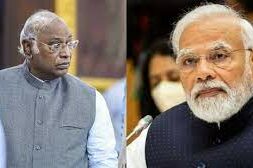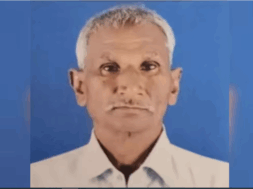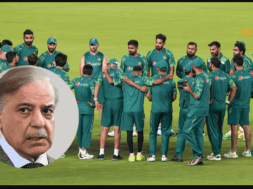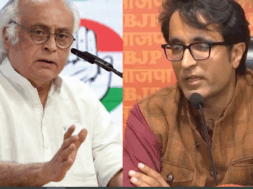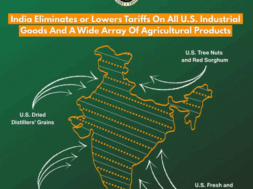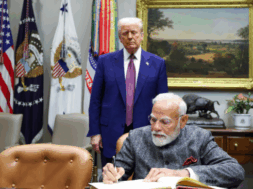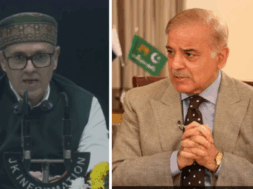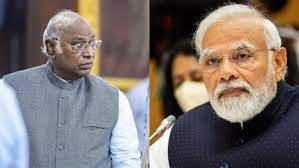
Manas Dasgupta
NEW DELHI, Oct 7: Taking a cue from Rahul Gandhi, the Congress leadership is learnt to be warming up to the idea of making caste-based survey of the population the party’s one of the major campaign point in the coming elections.
At every election rally, Congress leaders from party chief Mallikarjung Kharge to Rahul Gandhi and Priyanka Gandhi Vadra have been promising a state-wide caste survey if they come to power. The sudden fondness for caste survey is emerging as a key issue in both state and general elections expected in the next few months. It was never the Congress party’s official line as even before Mandal commission recommendations were implemented, the Congress did not support a caste-based reservation.
Even within the INDIA bloc of the opposition parties, with the exception of the Trinamool Congress, no other party would be averse to the idea of making caste-based survey its main election agenda. Though publicly the party has not taken any stand on Bihar’s caste-based survey, the TMC was learnt to have opposed incorporating caste-based survey in the political resolution of the INDIA during its last meeting in Mumbai.
The Bihar ruling parties, the Janata Dal (United) and the Rashtriya Janata Dal (RJD), both members of the INDIA bloc, took the lead in publishing its caste survey data. Rahul Gandhi made it an election issue and highlighted it as a major talking point in the Karnataka election. This drew a reaction from Prime Minister Narendra Modi, which the Congress says strengthened the party’s resolve to work for a caste survey. Other parties in the newly formed Opposition alliance INDIA have also demanded caste survey. The Congress Working Committee has never formally endorsed caste survey, but is now learnt to be supporting the idea.
Modi’s vehement attack on the Bihar caste-survey followed by his strong criticism of the opposition that the INDIA bloc was trying to divide the country on caste basis even after the Bihar unit of the BJP had initially said it had supported the caste-based enumeration by the state government, may provide some ammunition in the hands of the opposition parties.
Considering that estimated overall population of the Other Backward Classes, who largely benefit from the caste-based survey, was in the region of 60 per cent of the population in the country, their support could take the INDIA bloc to the winning post despite the BJP’s attempts for consolidation of votes on the religious lines.
Former Prime Minister Rajiv Gandhi in the height of the Mandal agitation during a no-confidence debate in parliament had opposed caste-based reservations. But with the implementation of the Mandal Commission report and various Supreme Court judgments, the party has taken a position and has been endorsing publicly the demand for caste-based reservations and a census with caste enumeration.
The Congress wants to send a message of being united and unequivocally for a caste survey, which can be used as a strong tool to mobilise not only in the Hindi heartland but also in the southern states where Other Backward Classes (OBC) politics is widely prevalent.
The party will discuss the preparations for both state and general elections, the status of alliances and the alleged harassment of Opposition parties by law enforcement agencies, which the Congress says are acting at the behest of the centre.
Rahul Gandhi’s call of “jitni aabadi utna haq” (quota proportionate to strength in population), designed to draw the OBCs (Other Backward Castes), is plagiarised from a slogan first raised by Ram Manohar Lohia in 1956 and adopted by the Samyukta Socialist Party (SSP) in 1961. The Lohiaites asserted, “Sansopa ney baandhi hai gaanth, pichhdey pawen sau mein saath” (SSP has resolved that the Backwards must get 60 percent). The Congress under Jawaharlal Nehru, while sympathetic to the cause of the deprived, did not agree with this caste-slogan being incorporated into political agenda.
In the 1980s, Bahujan Samaj Party (BSP) founder Kanshi Ram modified the Lohiaite clarion: “Jiski jitni sankhya bhaari, uski utni hissedari”. Both slogans emerged during Congress rule. The Grand Old Party did not rush to imitate or emulate the chant.
When the Mandal Commission report drove the political discourse in the Janata Dal-National Front days, Rajiv Gandhi, speaking in Parliament as Leader of Opposition on September 6, 1990, questioned the haste with which VP Singh railroaded the decision, provoking strife on the streets (self-immolation by youth included). “Let us not have one man’s obstinacy holding India hostage,” thundered Rajiv Gandhi, pointing out inadequacies in the Mandal report. He subscribed to economic backwardness, not caste, as the yardstick for reform.
Rahul Gandhi, by jumping into the caste survey and the “Jitni abaadi utna haq” debate, has departed from Congress’s legacy, perhaps on the hope that it may stem the party’s downslide since Narendra Modi’s emergence.
The row over the caste census and its aftermath, which has placed Narendra Modi on the crosshairs of the “INDIA” bloc, stems from the fact that the BJP has slowly but steadily usurped the “Mandal” agenda while keeping alive its “kamandal” stance of Hindutva.
In 2009, the BJP polled 22% of the OBC votes, while the Congress was backed by 24%. Regional parties won 54%. After the emergence of Modi, himself an OBC (his caste mooring is among EBCs or Extremely Backward Classes, the lower strata of the OBC spectrum), the BJP’s share shot up to 34% in 2014 and 44% in 2019 (Breakup: 40% OBCs and 48% EBCs backed BJP, making an average of 44). The Congress plummeted to 15% in 2014 and 2019. The share of regional parties was 51% and 41%. (Regional parties in this estimation included non-INDIA bloc parties like Biju Janata Dal, YSRCP and BRS, ruling parties of Odisha, Andhra and Telangana, respectively).
To counter the INDIA bloc, Modi has said the poor are the biggest “caste”, entitled to the biggest share. Modi seems to be subscribing to the Marxian “Class” analogy of economic deprivation, as opposed to parties like the Communist members of the INDIA bloc, who are harping on caste. In 1990, Rajiv Gandhi’s emphasis on economic backwardness was in a similar vain.
